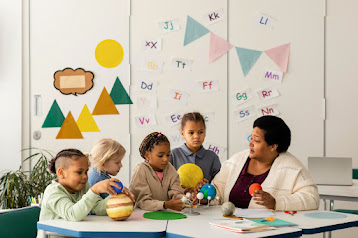Cognitive Development
Music has been shown to promote cognitive development in young children.
Learning to play an instrument or singing songs can help develop memory, attention, and problem-solving skills.
Listening to music can also stimulate the brain and enhance neural pathways associated with language and spatial reasoning.
Language and Literacy Skills
Music can help develop language and literacy skills in young children.
Singing and listening to songs can improve vocabulary, grammar, and syntax.
Music education has been shown to improve phonological awareness, which is the ability to identify and manipulate the sounds of language.
Social and Emotional Development
Music can help children develop social and emotional skills.
Singing and playing music together can build social connections, empathy, and cooperation.
Music can promote emotional regulation and help children learn to express their emotions in healthy ways.
Motor Skills
Playing musical instruments or engaging in rhythmic movement can help develop fine and gross motor skills.
Learning to play instruments has been shown to improve hand-eye coordination, dexterity, and finger strength.
Cultural Understanding and Appreciation
Music can help children develop an appreciation for different cultures.
Exposure to different types of music can broaden children's horizons and foster a sense of curiosity and openness. Visit a nursery pre school Indore to know more about it
Creativity and Imagination
Music can inspire creativity and imagination in young children.
Playing musical instruments, composing songs, or singing can provide an outlet for self-expression and creativity.
Conclusion:
A preschool in Indore knows exactly how important the role of music is. Incorporating music into early childhood education can provide children with opportunities for self-expression, creativity, and cultural appreciation while developing language, literacy, and cognitive skills. By recognizing the importance of music in early childhood development, we can help support children's overall growth and development.

Comments
Post a Comment